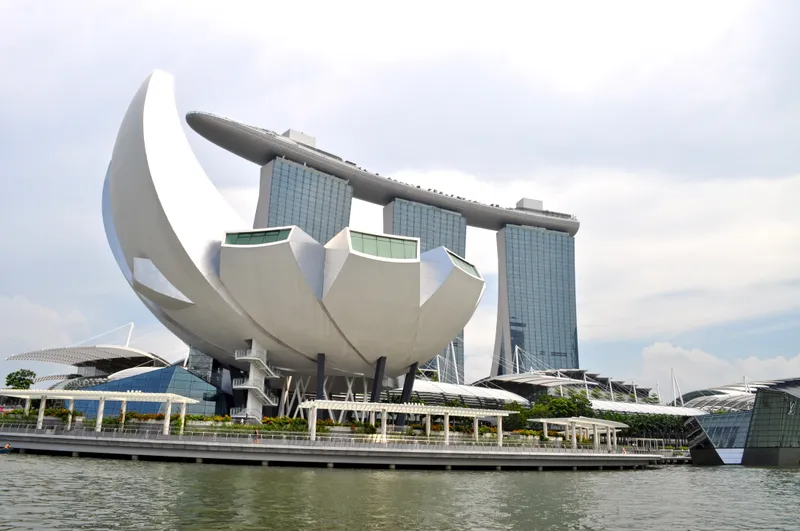

The Challenges of Doing Business in Singapore
Starting a business in Singapore gives you the chance to take advantage of the low taxes, great funding options, and government grants in the country. Read more about the challenges of doing business in Singapore.
Singapore is an Asian country that has seen significant growth since World War II. For years, the country has consistently cultivated a culture of integrity, quality, productivity, reliability and respect for intellectual property rights among its people. This has made it one of the best investment destinations in Asia.
Starting a business in Singapore gives you the chance to take advantage of the low taxes, great funding options, and government grants in the country. There are many investment incentives that have been put in place in Singapore to attract investors, and this has worked extremely well over the years. Which means there are many attractive and competitive opportunities for people who want to venture into the Singaporean market.

However, despite being such a wonderful business destination, Singapore has its own unique set of challenges. This article will take a deep dive into some of the challenges that you are bound to come across when doing business in Singapore. Here are a few of them:
Starting up your business
The process of starting a business in Singapore can be quite lengthy, so you have to be prepared and get all your credentials right. When starting a business in this country, you must first register with the Accounting and Corporate Regulatory Authority on their online platform. Here, a name search will be conducted to find out whether there’s a business registered with a similar name as yours in the country. Once registered. you also need set up a number of things such as incorporation, getting your tax number, a company seal, and Work Injury Compensation insurance before you can be legally allowed to do business in the country.
Setting up your business’ property
In Singapore, registering property can be rather stressful. Paying for registration is such a hassle, it is the main reason why property registration is so complicated. You have to go online and get cleared with very many government bodies, including the Land Transport Authority, Network Department, the Inland Revenue Authority, Ministry of Environment, the Urban Redevelopment Authority and PUB-Water Reclamation. This process can take a lot of time and be very stressful.
Handling construction permits
This is also another tedious process. If you want to construct in Singapore, you have to go through eleven procedures of dealing with permits. The process typically takes less than a month, but all the same, it is a hassle.
Before commencing any sort of construction, you must obtain an okay from the Urban Redevelopment Authority. After this, proceed to get your plans approved, obtain technical clearance from the Ministry of Environment’s Central Building Plans Unit, the Commissioner for Workplace Safety and Health, and the Land Transport Authority.
Connecting electricity in your business premise
If you do not have electricity in your premises, be prepared to spend most of your time opening an electricity account and settling the connection fee for your business before the actual connection is done. The whole process takes around 36-40 days, after which you will be connected to the SP PowerGrid. Considering that every day without power is a day that you lose money, most investors find this long wait time absolutely unnecessary.
Credits and taxes
Singapore has no public credit registry that displays information on borrowings for individuals and firms.
Paying taxes, on the other hand, takes around 82 hours to finish. Companies have to pay taxes 5 times a year which makes this process time consuming considering it is all business time. Income tax, VAT, and social security contributions are all filed online.
There’s limited manpower
Singapore is among the countries that have the best professionals workforce in the world. However, getting experienced/skilled manpower can be hard for businesses because of shortages. This is a common problem for SMEs. The people of this country don’t apply for low paying jobs and outsourcing is also challenging because of strict regulations. However, in order to hire the best talent, NH Global Partners, can provide their professional expertise towards choosing the best talents.
Doing international trade
Singapore’s international trade is as developed as it is popular. Although this means that you are bound to experience rapid growth if you take advantage of it, it also means that you have to be really innovative and competitive for your business to rise up to the top of your industry.
Difference in culture
Before you start doing serious business or get well established in Singapore, you have to adapt to their culture. This process takes time, therefore, it should not be hurried. There are many cultures in this country because Singapore has attracted people from both the East and the West. When you move to Singapore, take your time to settle in so that you can know your way around. This will obviously cost you a lot of time and money but it is worth it in the end.
Final word
It is important to keep in mind that when compared to other Southeast Asian countries, Singapore’s living costs are a bit higher. Before you set up your business in this country, have a good budget and a rigorous financial plan to keep you going because money is probably going to be a little tight. Rental and office space costs are really high and workers expect high compensations. The whole process can be extremely costly, so proceed with caution.
In the end, however, Singapore is still one of the best investment destinations in south-east Asia. A strategic investment in the country will almost certainly yield very high returns.






